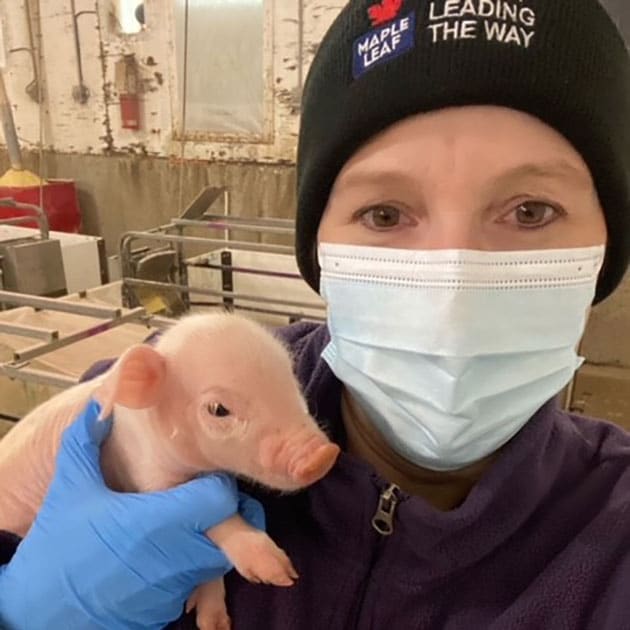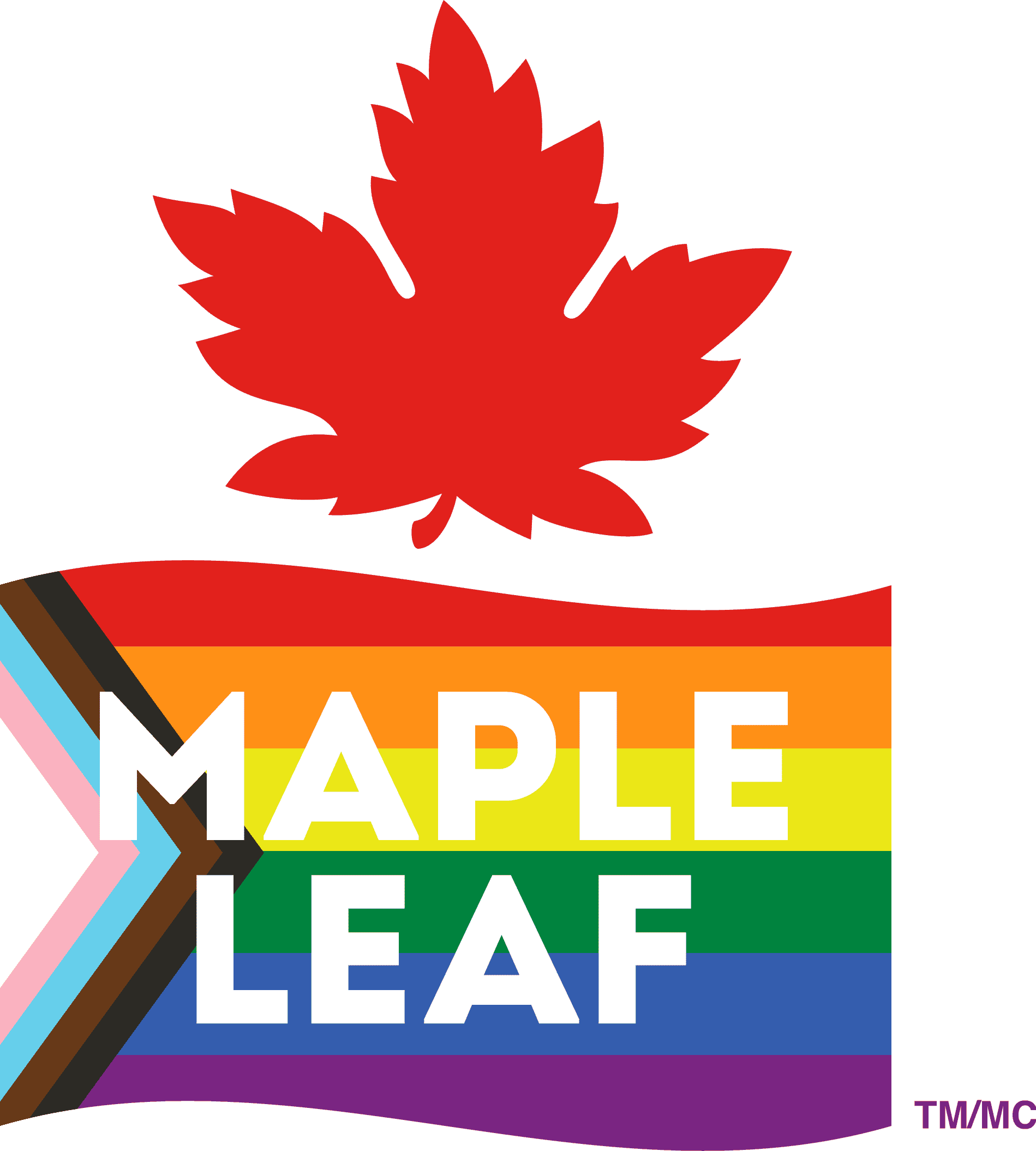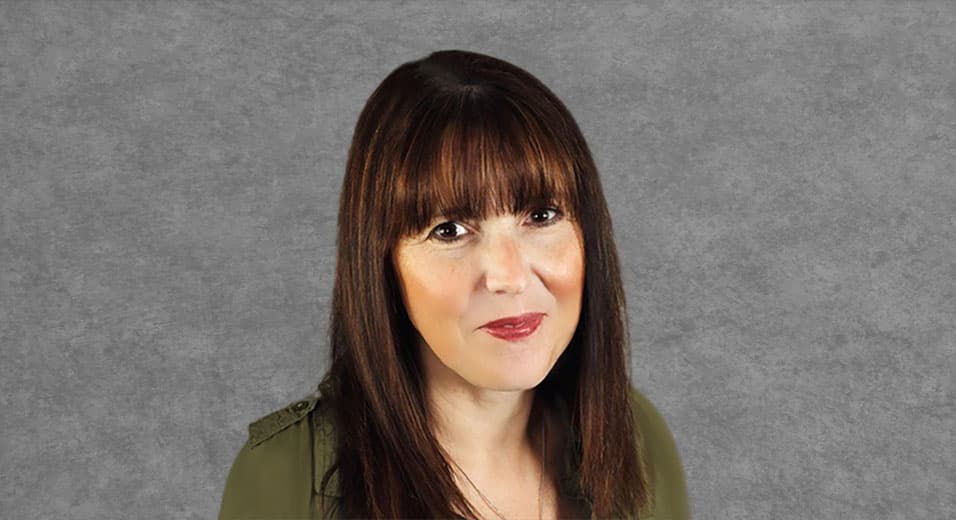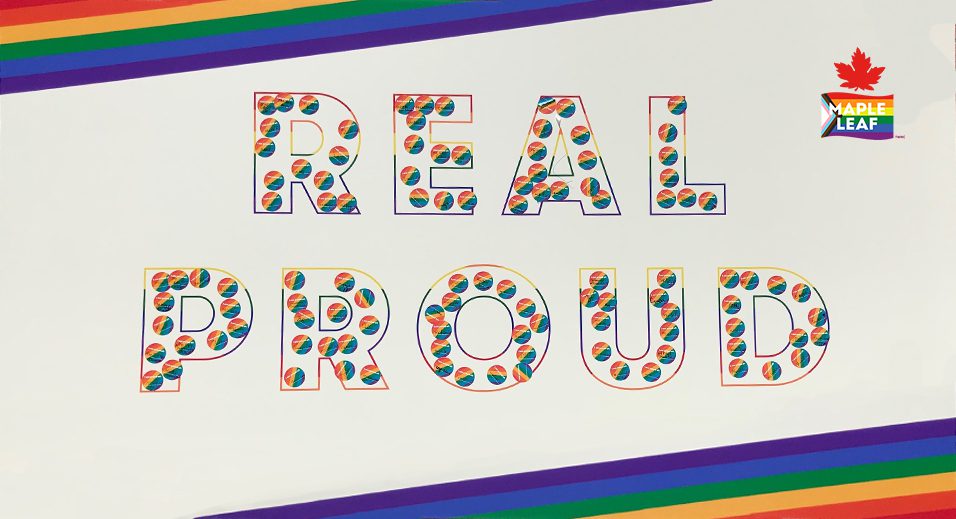As a leader of key Maple Leaf animal welfare initiatives, LeeAnn is one of the brilliant minds behind the Raised Without Antibiotics program and the Advanced Open Sow Housing System!
LeeAnn Peters serves as Director of Technical Services for Agri-Farms, the live hog division of Maple Leaf Foods. The division has 70,000 sows and produces roughly 1,800,000 market hogs annually.
For more than 22 years, LeeAnn has held roles in animal nutrition and was in various Six Sigma positions. She’s also Black Belt Level 1 certified and is proudly the only individual within the organization that’s also received a Black Belt Level 2 certification.
As a self-declared science nerd with a background in Agriculture and a passion for biological statistics, LeeAnn believes that Maple Leaf’s drive for continuous improvement and fact-based decision-making has been a perfect match throughout her career!
What brought you to Maple Leaf Foods?
After graduation, I spent a couple of years learning about commercial hog production in a hands-on way for a company called Puratone. What I didn’t realize at the time was the long-term value of this experience. It not only gave me the background to excel in my current role, but it’s also given me the credibility to be able to challenge industry livestock production practices, design a best-in-class Raised Without Antibiotics program, and the practical knowledge to drive our animal welfare initiatives today.
When the opportunity to work in animal nutrition at Maple Leaf Foods presented itself, I jumped at the chance to focus on my university major. Shortly after that, Six Sigma, statistical analysis, and continuous improvement became a passion. I thrived on the challenge of solving interesting problems through data analysis and fact-based decision-making. Fun fact: over my tenure in Six Sigma, I led 42 black belt projects and coached more than 100 individual green belt and black belts!
Ironically, my very last project was the Puratone Purchase & Integration — in a way, bringing my career full circle. This acquisition created the need for a leadership role to support the live hog business. The role is a blend of operational leadership and science-based project work that would draw on my Six Sigma experience — a 100% fit for my skills and talents!
What made you stay?
Maple Leaf’s immense and intense commitment to people development! The opportunities that Maple Leaf provides for personal growth, education, training, and mentorship are tremendous. I can’t even begin to put a value on all the different programs, courses, and coaching I’ve received over the years. It’s been a crucial component in developing me into the leader that I am today.
Why is gender equity so important in the workplace?
I think it’s important in every workplace. However, agriculture, like manufacturing is not a ‘sexy’ business. The environment is not always pleasant, animals don’t get sick only on weekdays, and emergencies happen more often than you would think. People stay because they’re truly passionate about this work and the role they play in providing safe food that’s raised in a humane way. When inequity of any kind creeps in, the risk of losing very talented leaders is very real. There have been points throughout my career when I’ve considered a change due to unequal treatment. In my case, passion for the business over-ruled those decisions but I do know others where that wasn’t the case.


During your career, what kind of progress have you observed in opportunities for women? Are you hopeful about the future?
Truthfully, working in agriculture 20 years ago, wasn’t always the most comfortable place for a woman to be. Things that are the standard today, like having a dedicated women’s shower or properly fitting work clothing and shoes, were hard to come by. I was in the minority and felt ignored at most meetings and conferences. I wasn’t taken seriously on many occasions, treated disrespectfully, and passed over for promotions that were given to less experienced and less qualified male counterparts.
Fortunately, I had a few wonderful Maple Leaf managers that encouraged my talents and abilities and gave me some amazing opportunities to grow my career regardless of my gender. They not only believed in me and championed me as the right person for the various roles but supported and encouraged me every step of the way. Without them, I wouldn’t be where I am today, and I’m eternally grateful for their support.
There are still challenges for women in leadership roles within agriculture today, however this is changing. Mentorship for women in non-traditional roles remains incredibly important and I’m very cognizant of the role I play in paying that forward. I’m currently the Vice Chair of the council for the Manitoba Institute of Agrologists and I’m energized by the number of bright, young women taking on non-traditional roles in the sector. I’m very hopeful that they’ll see easier career paths because of gender equity initiatives.
How do you define your purpose at Maple Leaf?
I define my purpose as a journey of continuous improvement both personally and professionally. As the best version of myself, I can empower others to grow as well. It does sound a little cheesy, but it really resonates with me. I am and will always be a work-in-progress but setting a positive example for others to continuously improve is a legacy that I want to leave.
What’s one of your proudest accomplishments?
I am probably the proudest of the two key projects that have effectively propelled Maple Leaf Foods as leaders in humane hog production in North America. They were:
- Developing a leading Raised Without Antibiotics (RWA) program and converting 100% of Maple Leaf’s hog flows to RWA production.
- Working with the MLAF team to design and execute the conversions to Maple Leaf’s Advanced Open Sow Housing System.
Both initiatives were big, hairy, and very intimidating, taking the better part of a decade to complete. I feel so privileged to have been a part of them during my career and can hardly contain my pride when sharing our story with our customers today!
What advice do you have for women in the early stages of their career?
I think that there’s been a lot of great advice given by my colleagues on this question on previous blog posts. For women starting out in their career: I would compile them and reference them often, there are some real gems in there!
From my personal experiences, my top five pieces of advice would be:
- Be open to all types of opportunities, big and small. There’s something to be learned from everything you take on. Never underestimate the value of a new experience.
- Feedback is a gift and what you choose to do with it is very important. Identify who can give you useful feedback — listen carefully and use it to make yourself stronger.
- Find a mentor and foster that relationship. Take the time to have deep discussions around your career.
- Define and re-define your brand: Who are you? What is your passion? What is your magnum opus?
- Build your career plan to support your brand…across one year, three years, and five years — but also learn to flexible when it requires adjustment to reach your goals!


